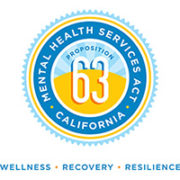How Can You Help Prevent Suicide
It’s okay to talk about suicide. More people are speaking compassionately and openly about mental health and their struggles. Talking about suicide with others can be life-saving.
1. Know the Signs
Notice your concern of any sudden changes in mood, words, or actions such as: increased substance use, difficulty sleeping, acting recklessly, feeling depressed, talking about suicide, feeling like a burden, access to firearms, etc.
2. Ask Directly
“I’m concerned about you. You’ve seemed really withdrawn. Are you thinking of suicide?” Asking will not give the person ideas to take their life.
3. Listen and Show Support
“I want you to know that support is available to help you through this.” Let them talk.
4. Refer for Help
“I’d like to sit with you while you call your (hotline, therapist, hospital) for help.” Find resources together. Do not assume a person will get help on their own.
5. Follow-up
“Let’s make a plan to connect again.” A phone call or note to show you care can help in the healing process.
What You Can Expect When You Call The Hotline
Your life is always worth a phone call and every option is preferable to suicide.
Our trained phone counselors are calm and caring people who will listen to you, understand how your problem is affecting you and provide support.
Know the Warning Signs of Suicide:
- Talking about wanting to die or to kill oneself.
- Looking for a way to kill oneself, such as searching online or buying a gun.
- Talking about feeling hopeless or having no reason to live.
- Talking about feeling trapped or in unbearable pain.
- Talking about being a burden to others.
- Increasing the use of alcohol or drugs.
- Acting anxious or agitated; behaving recklessly.
- Sleeping too little or too much.
- Withdrawing or feeling isolated.
- Showing rage or talking about seeking revenge.
- Displaying extreme mood swings.


